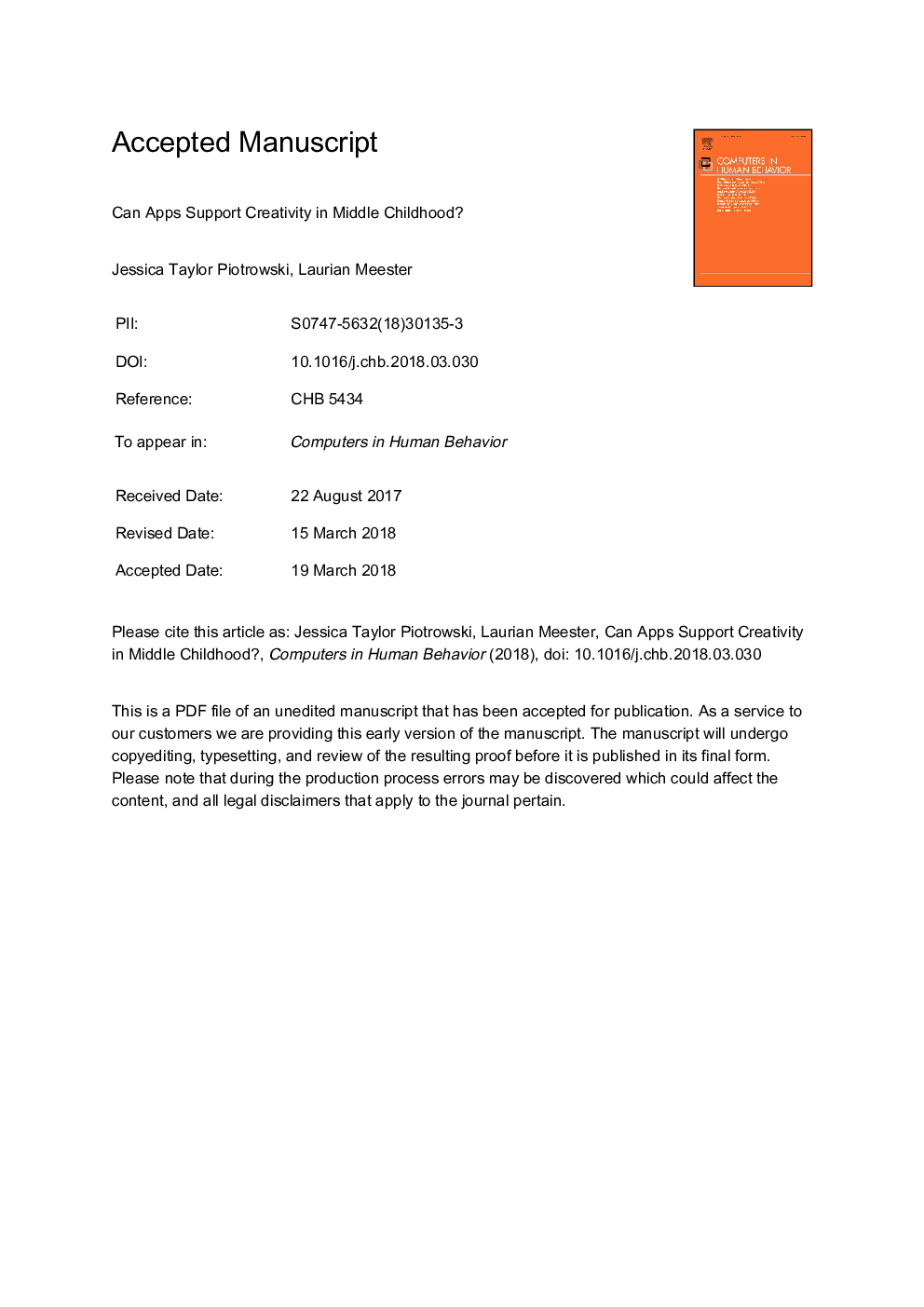| Article ID | Journal | Published Year | Pages | File Type |
|---|---|---|---|---|
| 6835892 | Computers in Human Behavior | 2018 | 48 Pages |
Abstract
This experimental study investigated whether and how creative apps may support creativity in middle childhood (nâ¯=â¯94 children, 8-10 years old). Guided by the moderate discrepancy hypothesis, flow theory, and the differential susceptibility to media effects model, developmentally-appropriate creative apps were predicted to increase engagement and subsequent creativity to a greater extent than developmentally-inappropriate creative apps. Furthermore, gender and fantastical thinking were predicted to moderate effects. Results provided partial support for study hypotheses. Children were more engaged when playing developmentally-appropriate apps, however, this engagement did not translate into creativity gains. Given that the data failed to support study hypotheses, post hoc analyses were conducted to explore the findings in greater detail. These additional analyses indicated that developmentally-appropriate apps not only lead to greater engagement, but were subsequently more appealing as well. These post hoc findings are discussed within the context of the study design, particularly noting that greater duration of play may be necessary to move the needle on creative skills. Empirical and practical implications are discussed.
Related Topics
Physical Sciences and Engineering
Computer Science
Computer Science Applications
Authors
Jessica Taylor Piotrowski, Laurian Meester,
